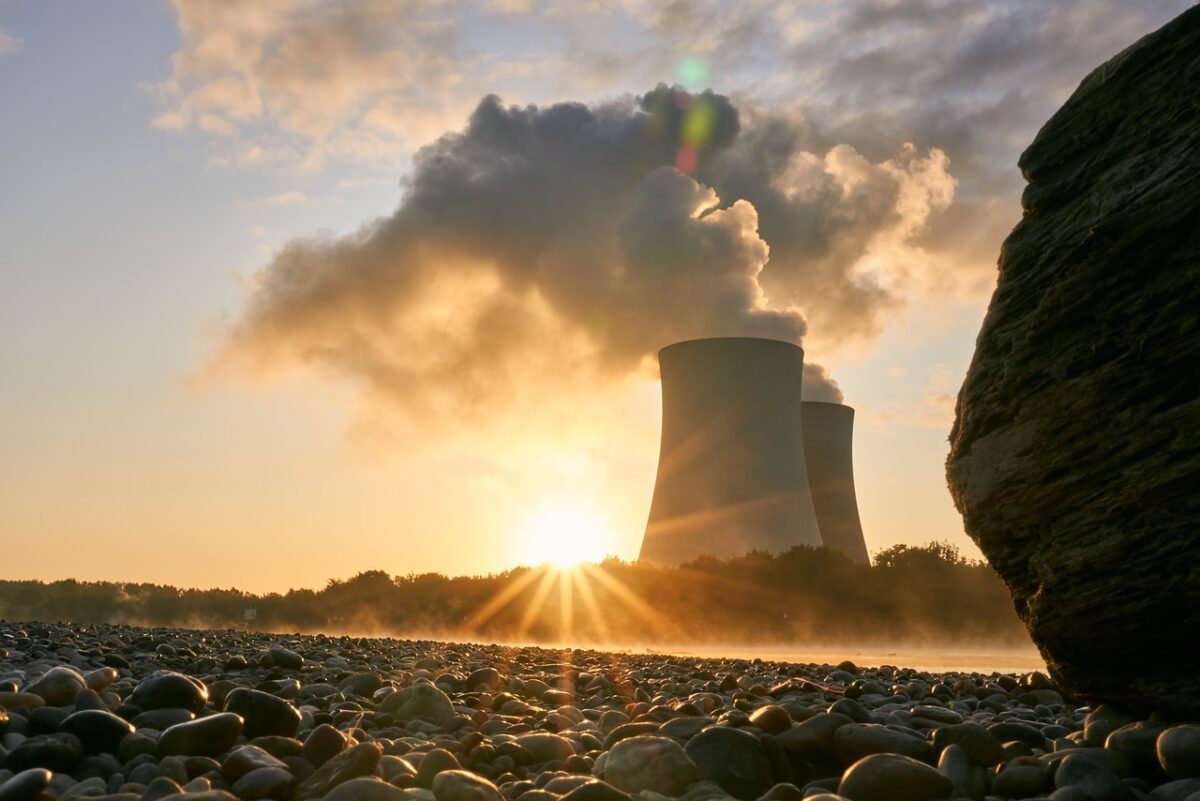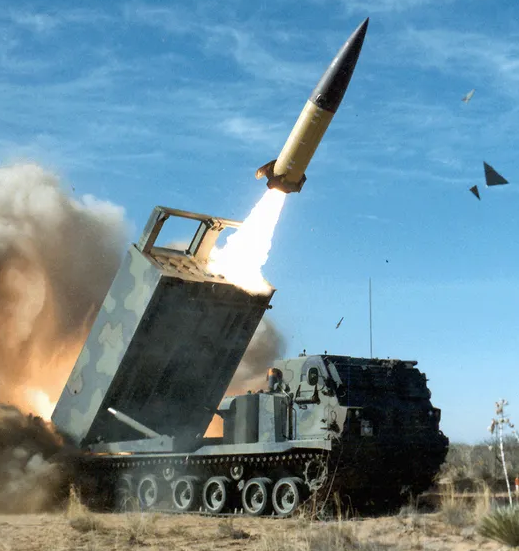- cross-posted to:
- energy
- energy
- technology@lemmy.world
- cross-posted to:
- energy
- energy
- technology@lemmy.world
Chasing profit is how we got here. This shouldn’t be the basis of the decision. If it’s the only thing we can use to drag conservatives along though, I guess it’ll have to do.
It’s not about chasing profit though, it’s about getting to net zero as quickly as possible using finite resources. Any money that goes to nuclear could be going to renewables, which would get us there more quickly.
This article is about profitability, not cost to net zero. They are very different things. It also ignores the cost of scale, go all in on say solar today and that doesn’t make more panels available, the increased demand would raise prices and suddenly its not so profitable.
Nothing is as simple and easy as people want it to be.
However, the researchers show that in terms of cost and speed, renewable energy sources have already beaten nuclear and that each investment in new nuclear plants delays decarbonization compared to investments in renewable energies. “In a decarbonizing world, delays increase CO2 emissions,” the researchers pointed out.
They talk about profit to get the attention of money people, but the ultimate goal is decarbonization. Hell, the title of the source article is “Why investing in new nuclear plants is bad for the climate”.
Two of the researchers are economists, and the third is an environmental economist. I’d rather get my opinions on decarbonization and nuclear energy from actual scientists and people who run research reactors.
It’s just money people talking to money people. I don’t trust an economist to make a value judgment on science when all they’re looking at is profit. I actually actively distrust them. They’re interested in investments and profit – nuclear has an undeserved stigma and it makes its profit in the long term, not the short term that they all seem to love.
If people internalized that last line of yours we could get shit done. …
deleted by creator
Solar price still decreasing and the demand never been so high. That’s the faster energy deployment.
Demand has never been so high. If we wanted to go all in on solar and get to net zero on it, that demand would be 100x higher.
Right now, the driving reason behind solar prices going down is to encourage more demand. If that demand were to jump suddenly, then that driving reason is gone, and suddenly it makes more sense to charge more as supply can’t keep up.
Maybe you’ll understand the point better now.
I was speaking about the market, the solar panel price. Many developing countries now invest in solar power to meet their energy needs with the cost of solar energy technologies decreasing and the availabilities of governments subsidies. The Ukrainian conflict may have an impact on the market but nothing is sure.
The path to Net Zero is mainly Solar and Wind. https://www.iea.org/reports/net-zero-by-2050
Right now, the driving reason behind solar prices going down is to encourage more demand. If that demand were to jump suddenly, then that driving reason is gone, and suddenly it makes more sense to charge more as supply can’t keep up.
Doubling down on ignorance is unbecoming.
You clearly don’t understand macroeconomics
Wait, do you really expect us to believe that increasing solar will increase its price? Have you looked at the cost of solar over the past decade? Do you understand the economy of scale as it applies to all 3 (solar, wind, and batteries) because I don’t think you do.
my dude, did you really need to make three individual comment replies all to me
Yes
Any money that goes to nuclear could be going to renewables, which would get us there more quickly.
That’s a false dilemma. Nuclear and renewables provide different things, so they shouldn’t be compared directly in an “either or” comparison, and certainly not on cost. Nuclear power provides a stable baseline, so you don’t have to rely on coal/gas/diesel powered generators. Renewables cheaply but opportunistically provide power from natural sources that may not always be available but that can augment the baseline. The share of renewable energy in the mix is something engineers should figure out, not “the market”.
Also, monetary cost shouldn’t be the only concern. Some renewables have a societal cost too, for example in the amount of land that they occupy per kWh generated, or visual polution. I wouldn’t want to live within the shadow flicker of a windmill for example.
baseline
Base load. Here’s an argument that we don’t need it: https://cleantechnica.com/2022/06/28/we-dont-need-base-load-power/
There’s an interesting point buried at the end of that article: electricity quality. With batteries in the loop, supply can scale with demand almost instantly, versus the time it takes for various types of power plant to adjust output.
I wonder if this has any impact on another piece of the puzzle, high voltage direct current (HVDC) which we need to transport electricity over large distances with minimal loss.
There’s an equally buried link to a death by powerpoint that made me pray for a blackout before i could get anywhere close to understanding how that bar graph was constructed.
I can’t vouch for the following being a necessarily better source, but this one seem a lot more upfront about some of their assumptions and sensitivities. In this adding storage to wind is seems to be +tens of dollars per MWh; a fair amount more than the +1-3 dollars per MWh shown in the cleantech article.
https://www.lazard.com/research-insights/2023-levelized-cost-of-energyplus/So i’d like to know where these cheap battery cost assumption comes from - is it proven tech, available at scale , at that price?
just seems a bit too good to be true.
Reading that… It basically seems to say that we can live with intermittent blackouts when wind and solar fail.
They don’t provide different things, they both provide electricity. Nuclear is only really suited to base load, whereas renewables can be spun up and down to match varying demand - however renewables are also more than capable of covering base load, because it’s all just electricity.
The only thing nuclear provides that renewables don’t is grid stability. Nuclear turbines have large rotating masses, when loads are switched on and off they keep spinning the same speed, helping to maintain voltage and frequency. Meanwhile renewables are almost all run via inverters, which use feedback loops to chase an ideal voltage and frequency, but that gives them an inherent latency when dealing with changes on the network. However, there are other ways of providing grid stability.
It’s not a windmill. It doesn’t mill anything. The technical term is Wind Turbine Generator (WTG), but usually they’re called wind turbines or just turbines. A group of turbines make up a wind farm.
Land occupied is not much of a concern when most renewables (and nuclear, for that matter) tend to be installed away from population centres. It feels like you’re grasping for reasons now.
Suffice it to say, I work in the electrical industry, and this isn’t the first report that’s come out saying renewables are cheaper, better value and quicker to build and get us to net zero when compared to nuclear. That isn’t to say nuclear isn’t important and shouldn’t be built, just that nuclear shouldn’t be a priority in pursuit of phasing out fossil fuels. At the end of the day, demand will only go up, so building a lot of renewables before building nuclear won’t exactly be going to waste. We’ll need all of it.
Renewables cannot be spun up. You have to massively over build to do that. And even then, you’re still depending on availability of sun and wind.
If you need more power than is available, it’s done with natural gas peaker plants at 10x the normal cost of electricity.
On the flip side, a stable base load of nuclear, can be spun up and down over the day to meet expected load.
That’s exactly the suggestion, over-build renewables right now to get to net zero, then fill out the generation portfolio with nuclear. The demand will only go up, so that excess renewables will eventually be used to capacity anyway. The study is laying out what the priority should be right now, when climate change has already got its foot well in the door.
Renewables can effectively be spun up or down as long as they have batteries. That way, they can usually be generating as much energy as possible regardless of demand.
In that case it’s the batteries being loaded and unloaded, not the renewables.
Storage can be connected to the grid anywhere and charged whenever power is cheap - from whatever sources are generating at that time. It is effectively an independent investment - assuming your on-grid / grid scale.
As far as i know the only major renewable electricity generation that is intrinsically linked to storage is reservoir based hydro with reverse pumping capability though even that increases costs and is a quite situation dependent if you want a lot of peaking power…
Nuclear fanboys could equally argue to add batteries so as to convert baseload into shape, or peaking.
is our battery tech even up to this?
Yes. There’s numerous live examples which have been in place for years (Horndale South Australia for example)
Yes. It costs less and requires less mining to use the most expensive and wasteful storage option. The only reason there aren’t more is a lack of sufficient investment in VRE required to make them useful.
Two’s a crowd: Nuclear and renewables don’t mix
Only the latter can deliver truly low carbon energy, says new study
https://www.sciencedaily.com/releases/2020/10/201005112141.htm
If countries want to lower emissions as substantially, rapidly and cost-effectively as possible, they should prioritize support for renewables, rather than nuclear power.
Adding 1GW that runs 80% of the time with months long outages to a grid that has 10GW of power available 95% of the time and 3GW 5% of the time doesn’t fix the issue and requires charging $4000/MWh rather than merely $200/MWh to pay back your boondoggle.
All the people chanting “baseload” understand this but pretend not to.
Seriously. By this logic fossil fuels are cheaper, thus better!
This is how we get garbage like carbon credits, trying to capture the cost to the environment in dollar amounts is just more symptoms the fallacy of using economics in lieu of physics.
Yeah no shit. We already knew nuclear was not profitable, but it’s clean & makes tons of power, so it’s a good deal for everyone that isn’t a business & wants cheap & clean energy.
I’d love for you to see the Uranium and Thorium mines in Canada and tell me how clean that looks to you.
Uranium and thorium mines are just as clean as the rare earth metal mines needed for PV cells. This is kind of a moot point. We need carbon free energy now and solar, wind, hydro, and nuclear are all part of the mix of solutions needed. There are many considerations currently being made to determine which technologies should be used in what locations.
Make sure to compare with a West Virginia mountaintop-removal coal mine.
The point of this research is that renewable are cheaper. So why would we invest our money in the more extensive option?
Government isn’t business. It should not be chasing a profit margin. The decisions should be around sustainability, ecological friendliness, and robustness against failure
Unfortunately, government is a business. They are beholden to the same profits and losses that any other business is subjected to based on market conditions. The government has to answer to shareholders (citizens) and it’s creditors (BoC and other countries).
deleted by creator
Least we forget the US is like the only country who won’t recycle their nuclear waste. We have enough sitting to generate power for like 140 years. Waste isn’t useless it can still be reprocessed…
In more general sense profitability is robustness against failure.
If only there were organizations of people who were known for building really high quality technology without a profit motive… Like some kind of space program 🤔🤔
They had a profit motive, like space race, cold war and all that. You know, USA and USSR were really preparing for The Global Thermonuclear War back then.
And, of course, all the people participating in that were being paid.
Nah, due to Negative Externalities and things like Tragedy Of The Commons it’s quite common for companies to be making massive profits whilst destroying the very environment they need to thrive.
I mean, look at Polution, look at Global Warming, look at Overfishing, look at the 2008 Crash - without an external entity (i.e. the State) to force them to change their ways or rescue them, most economic entities in the pursuit of profitability will act in ways that systemically will eventually destroy the very things they need to be profitable.
Stuff like Negative Externalities is pretty basic Economics.
That naive idea of your of how economics works probably came from stuff you heard from politicians, not from reading books…
While without a profit motive of any kind they won’t exist.
I really don’t get how those things you mentioned existing negate what I said. These are orthogonal. Well, except for that weird logic that it’s about choosing between two teams, but nobody can be that stupid, right?
Don’t confuse profit with capital
Define “clean”
Nuclear should be the only non renewable power we use at scale. Oil makes sense for emergency situations (it’s portable and is stable forever) and where energy density is most important (like aircraft, for now). Coal can fuck right off.
oil is ironically not stable forever
Though most people’s idea of “old bad gas” is defined not by pure gasoline, but ethanol-containing gasoline. Ethanol gasoline is hydrophilic – leave a can sitting over winter, and you’re going to get some rough running and billowing water vapor coming out the exhaust. Pure petroleum products are way more stable.
In my opinion clean is anything that doesn’t emit out of smokestacks.
Also in this case it doesn’t emit out of smoke stacks while the sun’s down and the wind’s not blowing.
Dams are terrible for the environment so hydro is out. Nuclear is cleaner than hydro.
Um… dams and nuclear tend to go hand in hand. They need shit tons of water in reserve for cooling. Alternatively, they can draw river water in, but any power plant that dumps hot water into the river is damaging the aquatic ecosystem.
What? Damns have nothing to do with nuclear. You’re thinking of in Ukraine and that’s unique situation. Also that dam was blown up and the nuclear power plant didn’t explode.
Take the nuclear titties near me, not a dam in sight.
https://en.m.wikipedia.org/wiki/San_Onofre_Nuclear_Generating_Station
Yes, because it is right next to the ocean. I wasn’t saying all nuke plants have dams. All nuke plants have water, and sometimes to have a sufficient quantity of water, dams need to be built. North Carolina has zero natural lakes, every lake in NC is made by a dam. https://en.wikipedia.org/wiki/McGuire_Nuclear_Station
cleaner* than fossil
people say “clean” when they mean “doesn’t produce greenhouse gasses”. Nuclear power is absolutely not “clean”. Waste sites will need to be monitored for like a thousand years to prevent everything from natural disaster leakage to terrorist aquisition of nuclear materials. The reality is a new powerplant is just the 5% down payment on a nuclear waste mortgage.
Waste sites will need to be monitored for like a thousand years to prevent everything from natural disaster leakage to terrorist aquisition of nuclear materials
Or build breeder reactors to convert the waste back into fuel and eliminate it entirely. Building nuclear power would literally reduce the amount of nuclear waste we have versus doing nothing.
And yet, all these pseudoscience anti nuclear people who talk about nuclear waste all the time don’t seem to be advocating for that. Curious, isn’t it?
Look the psuedoscience anti nuclear people aren’t going to be what kills nuclear power.
The problem is the option is to “replace pseudo science oil barons with pseudo science nuclear power barons.” Society isn’t largely run by scientists, its run by lawyers and business idiots.
If you operate under the assumption nuclear will be treated more carefully and delicately than oil, well I too would like to live in that star trek communism universe.
It will get dumped in water supplies. It will end up in food supplies. The reality is there is a difference between “looks good on paper” and “even some lawyer who doesn’t believe in germ theory won’t fuck it up”.
That’s a very valid point, but it isn’t unique to nuclear. Solar panel manufacturing produces some nasty chemical waste. Some might be manufactured using hydrofluoric acid even, which scares the living shit out of me.
There are going to be safety and waste issues with everything, and they’re going to be different types of hazards. I would rather drink water contaminated with some nuclear waste than have contact with hydrofluoric acid. Ideally I’d like neither.
I’m not entirely sure what the solution is. It’s hardly worse than oil (which also uses HF!), but that’s not adequate. What we need is regulations and regulators that make it cheaper to throw as much safety factors as possible on something vs pay fines for violations. I’m confident we have the technology needed, we just need to make sure it’s actually used.
If the pro nuclear people managed to build something that actually eliminates nuclear waste, it would take away most arguments of the anti nuclear people.
https://www.cnbc.com/2022/06/02/nuclear-waste-us-could-power-the-us-for-100-years.html
The technology exists, and has for decades. It wasn’t economical so it wasn’t considered for commercialization, although some companies are looking at it now.
If the anti nuclear people actually bothered to do proper research, perhaps we would’ve had enough support and outcry to build more of these reactors over the last several decades.
Depleted uranium can’t be used in fission bombs.
The nuclear fuel is pointless from military perspective… It just get burred into the ground, and there isn’t like 50 GTons if it every year
Not how it works lmao
The question has always been what does one do when the renewables aren’t providing enough power (ex: nights, etc). The current solution is natural gas. It would be a big improvement if we would use a carbon-free source like nuclear instead.
Pumped-storage hydroelectricity is an old and proven method for load balancing intermittent power sources. Would like to see more of that as geography permits.
The “as geography permits” part is a big obstacle, unfortunately.
Actually it isn’t if you stop only looking at places that are also suitable as power plant, that is, have a big river flowing through them.
You can do pumped hydro in an old mineshaft.
Can you? To store the energy you need to pump up; to use it you need to flow back down. Where is the ‘down’ or ‘up’ from a mine shaft?
I’d also question if the volume would be worth it.
Edit: maybe you are thinking compressed air?
…the up is at the surface and the down is at the bottom of the mine shaft? I’m not talking about horizontal ones, of course. You let water in, generating power, and then, to regenerate empty space and with that the capacity to again generate power, you spend energy to pump it up.
As to volume, there’s some gigantic mineshafts, but even small ones might warrant small installations it’s not like some pipes and a pump and generator are much of an investment. Of course, don’t try that in a salt mine geology will play an important part.
And lastly: Mineshafts aren’t the only option. There’s a lot of mountains, and they have many sides, and also plateaus and valleys. Build two concrete basins, connect them via pipe, ship in water from somewhere, voila, pumped hydro storage.
I guess I wasn’t clear where on the surface the storage is. Do they still make a dam type area to store the ‘high’ water, or is it just a different part of the mine which is closer to the surface?
I was able to find some mine numbers… yeah; insane. Especially something like an open cut mine which is functionally already lake shaped.
It’s an obstacle for anything, including nuclear. Just ask Japan.
Not in China.
That will not remotely cover baseline loads and is not without significant efficiency loss due to the pumping phase.
All commonly used forms of energy storage have some efficiency loss. Pumped storage is not perfect but my understanding is that it usually comes at a 10-25% loss, which isn’t all that shabby all things considered.
According to the article, the researchers concluded that nuclear reactors are not a good fit for that role.
Here’s an example of what can be done with 5 hours of storage. 5 hours is a 25% participation rate of V2G where the participants offer a third of their battery capacity.
If going with the (false) assumption that nuclear can hit 100% grid penetration, it would take decades to offset the carbon released by causing a single year of delay.
The lowest carbon “let’s pretend storage is impossible and go with 100% nuclear” would still start with exclusively funding VRE.
Lol at trying to pass that link off as a valid, unbiased source.
lol at a rando discrediting an article that gives supporting data. Did you even read it? Write your own well supported opinion and submit it here. We’ll wait.
Oh is that a new rule? You can’t point out garbage, bias sources unless you’ve written a dissertation on it? Fucking rube.
Good point. You are a garbage biased source.
Great comeback. Very cute.
But why don’t you go ahead and go get a juice box and let the adults speak.
TIL an “adult” is someone who denigrates a link without even reading it or having any substantive data points to support their points. Sounds like you have plenty of juice boxes to give out.
The growing idea is to just have a shit load of renewables, everywhere. The wind is always blowing somewhere, and the sun shines through the clouds. If you have a ridiculous excess total capacity then even when you’re running at limited capacity you could still cover the demand. Basically, most of our renewable infrastructure would actually be curtailed or offline a lot of the time.
And that opens up opportunities for energy intensive industries like aluminium or hydrogen production to run whilst there’s an excess of energy
I’m all for green hydrogen production, it’s using hydrogen in place of fossil fuels that bothers me. We already have a shit load of demand for hydrogen from industrial uses, and it would take 3x the world’s total renewable capacity in 2019, dedicated solely to hydrogen production, to meet this with green hydrogen. If we start adding transportation into that demand we’ll never make it, and it will be far less efficient than other energy sources (eg batteries).
So yeah, we should have green hydrogen production, but we shouldn’t listen to those same people when they say they think it should also be used for transportation. That’s just trying to increase the size of the market to increase profits.
Hydrogen works well with a renewable grids because you can take advantage of the times there is excess energy production so that power doesn’t just go to waste.
We do need to be careful because hydrogen is often sold as a pipe dream by gas companies to convince us to use gas (e.g. “this new gas turbine power plant can be converted to hydrogen”, even though that’d be a workload less efficient than fuel cells).
As for its use in transport, it looks like battery electric vehicles have won that battle for personal vehicles. Both have their advantages but in practice there are few enough fuel stations for hydrogen and enough chargers that that’s not going to flip.
However, batteries are entirely unsuitable to long distance, high load transport like trucks. Ideally they’d be replaced by rail, but that’s not happening anytime soon in many places so hydrogen likely will be the solution there.
consumers may also help reduce system costs by adapting their electricity consumption to the availability of renewable energy
From the linked paper. They mention some other options for storage like batteries (plenty of environmental issues there though) but based on the quoted text I have a hard time taking this seriously if they actually expect people to change their behavior.
Plug in car. Press the “I would like to only pay $100/yr to fuel this please” button.
Later when you leave for work press the “I would like the house to be cool when I get home and also want to pay half as much for AC” button.
Buy the 1.5m wide water heater that stores 10kWh of hot water and lasts a week between heatings rather than the 70cm one that lasts a day.
Such an unconscionable burden.
I think innovation at the consumption end is going to help a lot. On Technology Connections I saw an electric induction stove that could be powered from a regular socket. It had a battery that would trickle charge throughout the day and then use the batteries to power the induction cooktops, as well as a couple of plugs. If widely deployed and in other appliances, with a little smarts that could provide power leveling at the home level.
Another solution would be adding some intelligence to water heaters. Have a temperature control valve on the output where you set the temperature, and program the water heater get to 160-180°F when electricity is cheap. This would be a thermal battery that would easily level out demand for electricity for heating water.
Or you could do thermal storage by heating a house very warm/cold prior to a large cold snap/heat wave, and letting it coast down/up to a temperature instead of heating/cooling a lot during the cold/hot weather. He’s got a video on this technique here
Another solution would be adding some intelligence to water heaters. Have a temperature control valve on the output where you set the temperature, and program the water heater get to 160-180°F when electricity is cheap. This would be a thermal battery that would easily level out demand for electricity for heating water.
This has been done for close to a century in wind or run of river hydro heavy countries (as well as some coal ones).
The water heater has a buffer tank and is attached to a meter that only runs when a signal is sent across the power line. This stores about 20kWh for a 300L tank.
Modern insulation would allow going up to a few m^3 for a couple weeks’ worth.
Combine that with some radiant floor heating on a nice thick concrete slab and you could use the battery for home heating. (Though it would need a lot of water.)
Removed by mod
“Not enough power from renewables? Just turn off your fridge for a few days and you’ll be fine!”
Honestly that sentiment has strong “blame the consumer” vibes that seems to pervade climate arguments.
Sure, people can reduce consumption, but at best its a stopgap, not a solution.
There’s stuff like heaters and to a degree things like washing machines that can shape the time they’re active to whenever there’s a lull.
Consider Britain: Each time the BBC runs a popular show you get an energy usage spike once it’s over because people are getting up and make themselves a cuppa. Doesn’t really make sense to run the heater in the tank for your shower at the same time, or charge your car, that can wait a bit.
deleted by creator
Those potentially have the same issue. The solution to filling the gaps in production from renewable sources is not necessarily more panels or more windmills, it’s having energy storage somewhere to keep surplus energy when it’s being produced (e.g. during the day, or when the wind is blowing) available to be used when it’s not.
So in your example, each home could also have its own battery bank. Or, a larger battery bank could be placed somewhere on the electricity grid.
deleted by creator
If your appliances are efficient and your usage is moderate, you don’t need much to generate enough power to run your home. And, provided you don’t also need to charge an EV in the garage…
The 8 Bit Guy just did a video detailing his setup, which is all solar panel driven, and he rode out a day in the recent Texas heat running his air conditioners and so forth just on his solar panels and stored backup power. He has a comparatively rinky-dink number of panels, just a few over his little side porch and a couple more hung on his fence.
I imagine someone with one side of their roof paneled plus or minus a small windmill could easily power their own home as well as provide a surplus to charge a battery bank.
Just to add to this, we had 14 panels installed with a powerwall on an East/slightly NE, West/slightly SW roof at 55°Northern latitude. In the 7 weeks since we had them installed, every day we’ve made more than enough power for our usage. On more than 60% of the days so far we’ve filled the battery too and had to put up to 7kwh into my car. The worst days we’ve still made enough to power our house for more than 24 hours. This is genuinely way more than I ever expected to make and if we get a fraction of that through winter we’ll not need to charge the battery from off peak electricity as much as I had planned.
Now, granted this far north we’ll cycle from one extreme to the other but it seems like such a simple win to have panels for when you can and storage to smooth out usage on everything we can. You can get a surprising amount of power from just a “bright” day, even with cloud cover.
deleted by creator
I was and still am blown away. I’m already thinking how I can fit more on to our house and for other efficiencoes we can make, next one is likely to be a heatpump.
Our system has 5.6kwh theoretical capacity but were split 10 panels to the rear and 4 to the front. Even still, we’ve manage to peak at 3.64kwh output. For context we’ve had our system just short of 8 weeks and made 821kwh as of this post.
Removed by mod
deleted by creator
Removed by mod
deleted by creator
What makes you think personal renewable are going to be more efficient than large scale renewables? The sun doesn’t magically shine in the middle of the night on personal homes, the wind doesn’t magically blow only in residential areas…
deleted by creator
Nuclear is a terrible fit for peaker plants, that’s not how it works. If it isn’t selling energy at as close to 100% of the time as is feasible it’s losing money.
While I agree completely, it is troublesome that you, BombOmOm, are saying this… :/ username checks no fly list out.
Sometimes, a kinetic response is the only reasonable reaction. ;p Asking nicely doesn’t stop a Russian war of conquest.
Nuclear is not, and cannot be, a gap coverage solution. Due to xenon/iodine poisoning and decay heat management you need to keep a reactor critical as long as possible to be economical. That’s independent of the problem of keeping the water hot that fossil fuel generators share. You can’t just turn a reactor on and off.
It can provide a baseload though where solar can provide extra power during the heat for places where the summer and days are the power intensive part, rather than winter and nights. You still need a short-term stop gap as the sun sets but it’s still hot out, but even if that was just powered by NG it would be a huge step forward. Adding greener energy storage options to store extra power nuclear or wind could generate overnight would be better.
Btw, could a small percent of nuclear reactors be turned on/off seasonally, potentially transporting fuel between the north in the winter and the south in the summer?
Yes, but if you spend the money making a reactor, you really should just use it. Uranium is pretty cheap, it’s the reactor that’s expensive.
Fair. If a grid was just powered by batteries, solar, wind, and existing nuclear plants, which would be the most effective to turn off when demand is too low?
Keep the reactors running to avoid that issue. As long as they are providing enough power when the renewables aren’t, we successfully cut out natural gas from the power grid.
Columbia station load follows within a certain range set by nearby hydro. It can be done. The economics aren’t even that bad, as fuel is one of the cheaper inputs to the reactor.
The best solution is having EVs plugged into the grid at night. VTG is the easy solution to peaker needs.
Then you are getting into the issue of the power company eating up your charge cycles on your EV battery. Who pays for the fact that my battery now has half the design lifetime due to constant cycling because it’s feeding the grid?
These are easily solved details. For example, by providing power on the grid you are in essence a power company. Perhaps you get reimbursed based upon what you provide. You know net metering is already a thing, right?
I’m just saying that we might need to get away from the idea that a car battery is solely an owner expense. They’d have to be subsidized or there would be huge equity issues. And yes “I do know about net metering,right.”
Yes you are correct in stating that if you used your car battery for grid usage you would need to get reimbursed for that. And I gave you an easy solution. This could actually be a profit center for EV owners and if you have your car plugged into the grid at peak times, you would get reimbursed more per kWh (ie TOU) with the net metering. Win/win for everybody except utilities and fossil fuel providers.
The renewables-only crowd is just ignorant about this simple fact.
The future of energy will be dominated by solar and nuclear power. With hydro, geothermal and wind playing supporting roles, depending on geography.
The only question is, how much fossil fuels do we burn until then?
Those who oppose nuclear are really just in favour of burning fossil fuels in the interim. But the inevitable switch to nuclear will come as fossil fuels are depleted.
Nature has given us the atom as the most dense and durable way to store energy. That will never change.
Typical energy density of ore in a new uranium mine burned in an LWR is about the same of coal.
All of the economic/not too damaging stuff together would power the world for about 3 years.
at night perhaps they could sleep
Profitability is so much not the point here and also, there’s no reason for different energy production sources (especially ones that are base power vs incidental power) to be in conflict. Do both of them.
We don’t have to like it but unfortunately profitability is by far the number one driver for…well everything. So little is accomplished by way of altruism. People are greedy. The best way to successfully incentivize climate action is for environmentally friendly actions to become the most profitable and be advertised as such.
So I agree with you that both options should be used. But I disagree that profitability is not the point. Money is always the point and always has been.
Price of energy is key to the success of every economy.
Yeah exactly. None of it is profitable if you can’t meet instant demand changes at any time of day. Build the nukes to meet full demand needs and supplement them with “more profitable” options for redundancy.
None of this is profitable if you can meet demand power at will either.
It’s just a scarcity game that those in power use to keep things ticking along.
What is infrastructure to most, is a tuned revenue machine to a very few.
The purpose of a system can be determined by its output, and it’s working quite well in that aspect.
I’ve never had a rolling black out or brown out but we burn coal around here and there are proposals for some small nuclear sites. Yes there’s some solar and wind as well but we are a net exporter of energy to the western states.
There is, actually, a conflict. Renewables are more dynamic in production. You can turn them on and off quickly, you can scale them quickly too. You can’t do that with nuclear plants. Baseload is not a goal, it’s a limit. That’s why the nuclear energy sector is friends with the coal sector.
Example of Nuclear-Coal friendship from Poland: https://twitter.com/stepien_przemek/status/1642908210913853442
Example of Nuclear-Coal friendship from the USA: https://www.energyandpolicy.org/generation-now-inc/
A deeper understanding here: “The duck in the room - the end of baseload” https://jeromeaparis.substack.com/p/the-duck-in-the-room-the-end-of-baseload
Baseload is not a goal, it’s a limit.
I would love to know what oil company you heard that from, since it’s absolutely not true. You can both turn them off quickly (faster, in fact, than LNG or Coal), start them up quickly (sub minutes) and change production quickly. These have all been features since 1960’s era reactors, and we’re around 10 generations past them.
I think they might be referring to turning down the reactors, which I think is an actual difficulty with them. By no means however is it a reason to not use them, it just means you employ it wisely. Have it meet most of the demand, and use solar and wind and others to supplement to full demand.
That’s not difficult. Nuclear is extremely expensive.
With renewables you just sell it to the grid for whatever gas generated electricity is going for. Which is currently still a fucking lot. Thanks Russia.
Removed by mod
Thanks Russia.
Oh, it gets worse. Russia is big on nuclear, they have a whole agency that deals in nuclear in Europe, it’s called ROSATOM.
This is related to other post with the fossil-fuel sponsored ecomodernist girl whining about Greenpeace and nuclear:
Russia lobbied to have the EU include nuclear energy and fossil methane to be included in the “sustainable” taxonomy: https://www.greenpeace.de/publikationen/20220517-greenpeace-report-russland-taxonomie.pdf (PDF)
Russia has a good stranglehold on nuclear energy: https://www.bloomberg.com/news/features/2023-02-14/russia-s-grip-on-nuclear-power-trade-is-only-getting-stronger and many European powers …compliant to that.
Russia’s nuclear trade with Europe flowing amid Ukraine war https://web.archive.org/web/20221011224411/https://abcnews.go.com/International/wireStory/russias-nuclear-trade-europe-flowing-amid-ukraine-war-90691865
European Union nations are continuing to import and export nuclear fuel that is not under EU sanctions on Russia
Russia’s Grip on Nuclear-Power Trade Is Only Getting Stronger https://www.politico.eu/article/russia-nuclear-power-uranium-plants-europe-imports-germany-sanctions-ukraine-war/
New data show exports in the strategic industry jumped more than 20% last year, as long-term projects boost Russian influence.
Here’s an article in German: https://www.spiegel.de/wirtschaft/unternehmen/uran-abhaengigkeit-russland-koennte-den-usa-noch-erhebliche-schmerzen-zufuegen-a-cad81a53-4704-4842-a641-1b6191e4add5
It’s even more complicated, but building nuclear now in Europe would mean more dependency on Russian nuclear fuel and nuclear tech.
This includes France, the nuclear postergirl:
French Nuclear Power Crisis Frustrates Europe’s Push to Quit Russian Energy https://www.nytimes.com/2022/06/18/business/france-nuclear-power-russia.html
France typically exports electricity, but now it risks blackouts and a need for imported power because of problems at the state nuclear operator.
France accused of funding Putin’s war effort by buying his nuclear fuel https://www.telegraph.co.uk/world-news/2022/12/02/france-accused-aiding-putins-war-importing-russian-nuclear-fuel/
It’s not just complicated, with many limits, but the useless yammer of nuclear-fanboys is just using up air in discourse.
Building more nuclear will not help with with climate warming mitigation. And it has its own problems with climate, as France knows…
(most recent time this happened, again) France to reduce nuclear power generation due to heat wave https://www.laprensalatina.com/france-to-reduce-nuclear-power-generation-due-to-heat-wave/ from a few weeks ago.
Building More nuclear will help with climate warming. None of your links deal with that.
how will it help? the stuff comes online in decades in the future. We need to reduce emissions now.
I agree we need help now. There’s a reason it comes so far in the future and all of them are artificial.
If we really wanted to we could build safe nuclear tomorrow. Okay that’s a bit of an exaggeration but you know what I mean.
K, but this isn’t about profits. This is about not destroying the environment, which nuclear can help with (you know if nobody bombs the plant)
But it’s also about cost. Nuclear is far more expensive upfront, more expensive to maintain, and more expensive to decommission. Cheap, agile renewables will be an easier option for the vast majority of the planet
We would be really stupid to worry about money when trying to save the planet. But, what did I know, I’m just some guy on the internet
Financiers tend to worry about money, yes.
First option: a wind/solar plant with costs that aren’t going to increase substantially, power being sold within a couple of years therefore repayments will begin quickly.
Second option: a nuclear proposal - massive costs upfront, that will inevitably skyrocket while the completion date slips and slips, and power being sold 10-15 year in the future so repayments are a long way off.
It’s not a difficult choice.
If your argument is that we should nationalize the energy sector so government can get involved more directly to mitigate financing issues, sure. We both know that’s not going to happen.
How does one provide power when the renewables don’t provide enough power (nights, etc)? Our current solution is natural gas. Nuclear is a huge step up as a carbon-free provider.
Storage, there are many options. Pumped hydro is great for places with elevation change, molten salt is great for desert climates. Batteries, green hydrogen, compressed gas, etc.
We’ve been storing energy for thousands of years. It’s not difficult in the way nuclear fusion, SMRs, or thorium are difficult.
We’re also moving towards EVs. I’d like to see investment in using a fleet of connected EVs as a giant battery. Your energy company can pay you for making 10-15% of your EV battery available for grid storage and you can opt out if you need that extra range for a trip.
The largest battery on the planet would power my workplace for less than two hours- if it could meet the instant demand, which it cannot.
I’m all for energy storage, but I realise there’s a lot of work to do.
1,200MW isn’t enough? Where do you work?
Why do you think batteries can’t meet instant demand? That’s kind of their whole thing.
For processes like that though, nuclear would make the electricity too expensive to be economic, renewables wouldn’t.
The article talks about the coming droughts and water shortages. Pumped hydro is nice, if you have water.
There’s evaporation, which can be mitigated by floating solar panels, but pumped hydro is a closed system, it doesn’t consume water.
You save the water in a hole, then pump it back and forth. You can cover it with PV to stop evaporation
This is also good for the droughts as you have emergency water.
deleted by creator
@N1cknamed @NocturnalMorning be carful about time scale when talking about rentrability. In short term a few reneable is certainly cheaper, but nuclear reactor will outlive the ENR. For governement, long term rentability may be more important than short term one. Also, governement consider other parameters (jobs, resillience, public opinion, ghg emmissions? …)
We*rich countries would be really stupid to worry about money when trying to save the planet.There’s a lot of world outside the US, Europe, and China.
This is everybody’s problem dude.
Correct. Which is why cheap and agile renewables will remain a good option for less wealthy countries.
Everything is about profits. Otherwise we wouldn’t even be in this mess.
Ah, yes, love my last vacations in chernobyl
Nah, the power company likes the profits from nuclear way better.
The secret is that they can bill the ratepayers for all the cost overruns, while keeping the extra profits on the cost-plus construction contract for the shareholders.
(Source: I’m a Georgia Power ratepayer being absolutely reamed for Plant Vogtle 3 and 4, and the Georgia Public Service Commission isn’t doing a single goddamned thing to hold Georgia Power to account or to help people like me.)
Yeah, but think of the poor corporations.
Stop all the hate for nuclear. It’s just a way for the fossil fuel industry to cause infighting among those of us who care about the climate. If we can make energy free or close to it, we should. The closer everything comes to being free the better.
People pushing nuclear is a way for fossil fuels industry to keep us reliant on them for the next 20 years while we build power plants.
More than that as we will need to pay them to maintain storage which they won’t be keen to do without tons of government and tax payer assistance
Nuclear is the future. Stop trying to deny it. We should all be running it by now this shit was made like 60 years ago. But no, we’ll just eat smog I guess. Damn my feeds are kind of depressing today.
Fission is today. Fusion is the future.
It blows my mind we are avoiding this? You want jobs? Clean stable energy? Its fucken here dude. Just build some plants. They only need to be properly maintained to avoid disaster. If we truly are an intelligent species that should be easy as hell.
They only need to be properly maintained
And there is the issue.
I hate that its true, but yeah. Our city management accross the nation has long been pocketing maintenance budgets. Cause shit is run down everywhere in “the greatest nation”.
“disaster” is a big word for what happens with a nuclear accident.
The fire in Hawaï or the climate change are disasters. A hurricane is a disaster. Chernobyl or fukushima were disasters in the media much more than in the reality of things.
Cars kill more people every year than nuclear energy did since we use it. In fact, this is still true even if you account for atomic bombs…
Well, it comes at a cost, though: https://apnews.com/article/georgia-power-vogtle-nuclear-plant-bills-rates-9b9481bc44f6a4c985ab7702a553e21e
Energy should be nationalised. Energy does not need to be run for profit. It should be at a cost.
Even if it’s nationalized we still want energy generation as low cost as possible so we can use the national budget for other things.
Sure, but cost isn’t the sole (or main) consideration when you remove profit-motive.
Also, you only need to break even, so it will always be more affordable than private sector.
That just goes for everything, though. Thats not specific to any one industry. Clean and abundant energy will come at a cost and that should just be acceptable.
No its not, anyone thats actually gone over the basic numbers knows this. Nuclear power is expensive to build, takes decades to start and takes a lot of highly skilled workers. Wind is cheaper per MW, more profitable, buildable in 6 months, can be put in even remote areas, does not require highly skilled workers for normal operation and is more carbon efficient.
We should probably use both. How much mw/hr does wind produce compared to nuclear? Once nuclear is up and running what are the continual costs and what are the benefits? Theres a lot more to ask here than just “what is more profitable”. Your points on winds’ adaptability is good as well as your points on timeframe. But I don’t think a single energy source is the actual answer. I’m thinking we supplement these energy sources with each other and that would bring us completely off fossil fuels.
How much mw/hr does wind produce compared to nuclear?
That depends entirely on how much of each you build, but wind is less expensive to build per MW than nuclear. Once nuclear is up and running what are the continual costs and what are the benefits? Nuclear costs more to run as the systems are far more complicated in order to make them safe and you need a relatively large workforce of highly trained mechanical, electrical and nuclear engineers which cost a lot to employ. Whereas for the most part wind farms are completely autonomous, in exchange for very few benefits. The profitibaility takes into account quite a lot really and so its better to build the more profitable one as you can then use that profit to build more, which gets us off of fossil fuels faster./
I mean even cursory searches say you are wrong. https://www.energy.gov/ne/articles/nuclear-power-most-reliable-energy-source-and-its-not-even-close, but sure dude.
What is this supposed to prove wrong exactly?
That nuclear produces more MW/HR than wind at an exponential rate.
https://www.ans.org/news/article-1462/wind-power-and-nuclear-power/
“Capacity factor is the feature highlight of this info-graphic poster. To make a graphic representation of how this compares to one nuclear power plant rated at 1154 megawatts (MW), this shows the full count of all 2077 2-MW wind turbines in a 24"x36” poster. This is what would be required to match the nuclear power plant output even if this array of turbines could hypothetically run continuously at only 25 percent of its rated capacity."
I’m giving you sources. You can downvote but I don’t see your numbers reflected in any study.
The cost per MWh produced over a year, with grid + storage costs, is the number that matters. Wind and solar combined are much cheaper than nuclear there. For a source look that the most recent csiro gencost report. It’s produced by the Australian national science body and basically says that in the best case if smrs reach large scale adoption and operate at a very high capacity factor… They’re still way too expensive for the power they produce when compared to wind and solar with transmission and storage.
To get off fossil fuels faster it needs to be economic, and nuclear isn’t economic. Renewables are
Okay? I never said anything contrary to that though? So what’s your point?
Profit doesn’t equal good. Renewables take a lot of materials and fabrication to upkeep. Im sure theres more money to be made in renewable than there is in nuclear, that doesn’t imply one is better than the other.
Until we are able to sort out the cost/tech to make a green-sourced grid (such that the role of utilities is to capture surpluses from when the sun shines and the wind blows and sell it back when transient sources aren’t producing) nuclear is going to be an important part of a non-carbon-producing energy portfolio.
Already it’s cheaper to bring new solar and wind online than any other sort of electrical production; the fact that those are transient supply sources is the last major obstacle to phasing carbon fuels entirely out of the grid. If nuclear can be brought safely online it could mean pushing the use of fossil energy entirely into use cases where energy density is critical (like military aviation)
More profitable AND safer. Humans are too stupid, lazy and bureaucratic to use nuclear.
To be fair though per terrawatt hour nuclear is safer than wind power and only beat in safety by solar.
Not actually safer, per kilowatt hour though.
Gotta love anti nuclear activists getting more and more desperate. You’re being decarbonised. Please do not resist.
I would love to be decarbonised, but unfortunately i dont have the patience to wait 2 decades for it to happen.
How long do you think it takes to build renewables? It’s been about 20 years since most countries have started implementation and no country is 100% reliant on renewable energy or could store even a night’s energy needs without generation.
You can build a 50MW wind farm in 6 months
It’s been about 20 years since most countries have started implementation and no country is 100% reliant on renewable energy or could store even a night’s energy needs without generation.
Lot to unpack here.
There are actually a few countries that have 100% renewable capacity such as Iceland or Scotland and a lot more that are very close.
Yes we could be 100% renewable by now but the ff industry has done a lot of lobbying and conservative politicians have dragged their feet.
It has been a lot longer than 20 years since countries started building nuclear, yet were not 100% nuclear, is that a fault of the technology? or the politicians and NIMBYs?
Wind works at night, so you dont really need to store a nights worth of energy, especially as energy consumption is much lower at night.
Decarbonised by a stagnant and expensive industry that’s friends with coal? Unlikely.

https://i.imgur.com/4z837gc.png
nuclear energy is stagnant and decaying.
nuclear energy is stagnant and decaying.
Do you think you may be confusing the cause with the effect?
Alright, tell me how many more nuclear reactors are needed globally. Let’s just start with decarbonizing electricity production.
And, next, tell me how long do you think that will take, judging based on the average reactor construction time since, say, 1990.
Or look it up, maybe someone wrote an article with such a response.
The best time to build them was decades ago, so clearly the second best time is to… Never? Your argument is taken straight from the oil and coal industries – it would take too long to build up renewables infrastructure, so let’s just not do it? We shouldn’t build windmills, because you can’t tell me how many we need globally?
You’re grasping at straws. If you care about climate change, and you trust in science, there’s only one valid viewpoint on nuclear energy. I welcome dissenting opinions however and would be more than happy to hear why you disagree. Just know that I took courses in college on nuclear reactors and their design as part of my degree, as well as environment engineering, and I currently work in the green energy field – by no means am I automatically correct, but I want to see an argument that’s based in science and recent scientific studies and analysis, let’s say anything past 2015.
The best time to build them was decades ago, so clearly the second best time is to… Never? Your argument is taken straight from the oil and coal industries – it would take too long to build up renewables infrastructure, so let’s just not do it? We shouldn’t build windmills, because you can’t tell me how many we need globally?
You seem to be unaware of the plans and needs to reduce GHGs. We do not have decades to waste.
You’re right, and that’s why it would be foolish to build exclusively nuclear. It’s also foolish however to not build any nuclear. The long lead time means we need to start ASAP so it’s ready ASAP. With proper government action targeting bottlenecks in the process (I believe there’s only one manufacturer in the world for a certain type of reactor shielding) we can speed that up.
Diversification is the way to go. At the very least, we should build enough reactors and breeder reactors to consume existing nuclear waste and drive that to effectively 0.
On top of all that, the bottleneck for deploying solar and wind en masse isn’t actually solar and wind facilities (although we certainly need those) but our electric grid. It needs an upgrade in order to integrate alternative energies, and I believe estimates on doing that are ~10 years. We might end up in a situation where a nuclear reactor is actually faster to build, depending on the type.
I could not disagree more. Renewables are cheaper safer easier to deploy and secure the grid. Nuclear is dead.
Nuclear is the safest energy. It has the fewest deaths per kWh produced. Some modern reactors are able to consume nuclear waste to generate fuel as well. If you want to minimize nuclear waste, we need to build at least some reactors to shove existing waste into.
Nuclear keeps our already unsafe grid more unsafe. It’s too expensive and accidents, while rare, are disastrous. Nuclear is dead.
deleted by creator
Helium is the only element in the periodic table that is non renewable.
deleted by creator
America had huge reserves but released majority of it decades ago
The last helium from the National Helium Reserve is being auctioned off this November along with helium enrichment equipment, pipelines, and some office buildings too. Get your bid in!
Sir I would like one helium please
Different isotypes the one you buy for baloons is not the same type thags used in nuclear reactors
There was a strategic helium reserve that the US government operated, but it was defunded and drawn down to depletion because of capitalism (gov’t doing it means corpos can’t make $$$ doing the same thing for twelve times the price).
The National Helium Reserve was started in the 1920s to store helium for military airships and barrage balloons; but airplane technology got a lot better and so we don’t use airships or even many balloons for military purposes anymore. So the original purpose of the reserve never turned out to be all that useful.
Helium is found alongside natural gas, and there is still plenty of helium production in the US. Until we get a real room-temperature superconductor, every MRI machine consumes liquid helium for cooling. This and other industrial uses make it profitable for natural gas producers to keep extracting helium.
That sounds like “pie in the sky”:
The problem with fusion reactors is exactly the containment of the plasma and avoiding that it dissipates its heat through light emission.
If that was solved we would be better off doing fusion with plasma rather than fission, since even deuterium (a heavier form of hydrogen atoms because it has 1 neutron in the nucleous) can simply be extracted from the water and the H+H fusion reaction releases more energy than any fission reactions (and, funilly enough, would produce the much rarer helium, that’s needed for those reactors of yours).
The problem with fusion reactors is exactly the containment of the plasma and avoiding that it dissipates its heat through light emission.
That’s one problem. Neutron embrittlement is another.
Yeah, I was just addressing the previous post.
In all fairness I only checked what’s going on with fusion once in a while as my background is Physics (as in, I started a degree in it and then ended up going to EE because in my home country there really only are jobs for theoretical physicists, not the more hands-on kind) and hence only know it at a superficial level (of somebody with the background to understand Particle Physics but not a domain expert).
Yeah, I do know about the embrittlement of the container walls due to neutron emission from the fusion reaction (no idea how bad or not that is compared to the rest), but last I checked plasma containment was still a bit of a problem as was the plasma cooling through photon emission (mind you, that might not be as much of a problem for the kind of temperature of the plasma the previous poster was mentioning, which - I assume - are less that what’s need to induce fusion).
That said, all in all it just sounds strange to use fission to generate a plasma - I mean, bloody fire generates a plasma (the flame is a plasma) - so I don’t quite see the point of generating plasma with the whole overhead of a nuclear reaction rather than, say, high powered lasers, high-voltage currents (yeah, lighting is plasma) or just plain old chemical reactions.
That whole thing sounded a bit too much like “fancy sciency words thrown around to deceive the ignorant” so common in scams.
What about when the grid is almost entirely renewables? Is nuclear cheaper than just storage? What about storage one it’s already been implemented to the point of resource scarcity?
1kg of lithium produces about 10kWh of storage for 15-20 years. 3-12 hours of storage is plenty for a >95% VRE grid.
1kg of uranium produces about 750W for 6 years.
There are about 20 million tonnes of conventional lithium economically accessible reserves (and it has only been of economic interest for a short time).
There are about 10 million tonnes of reasonably assured accessible uranium (not reserves, stuff assumed to exist). It has had many boom/bust cycles of prospecting.
Lithium batteries are not even being proposed as the main grid storage method.
Cobalt is the difficult one, especially with the child workers mining it.
























